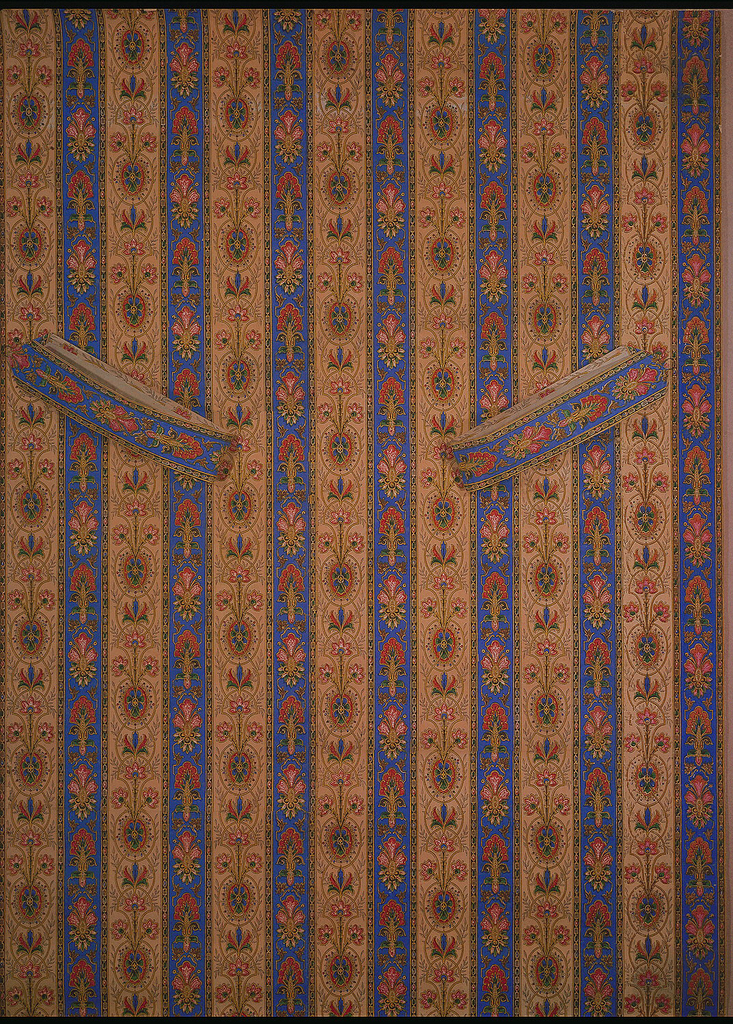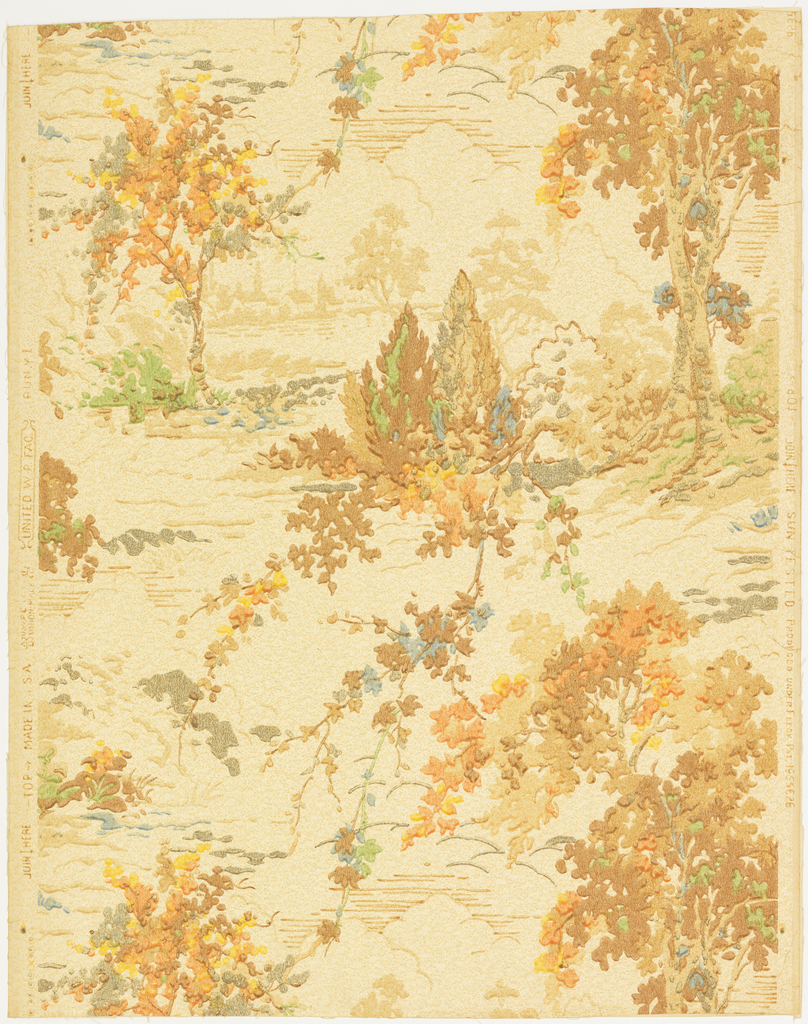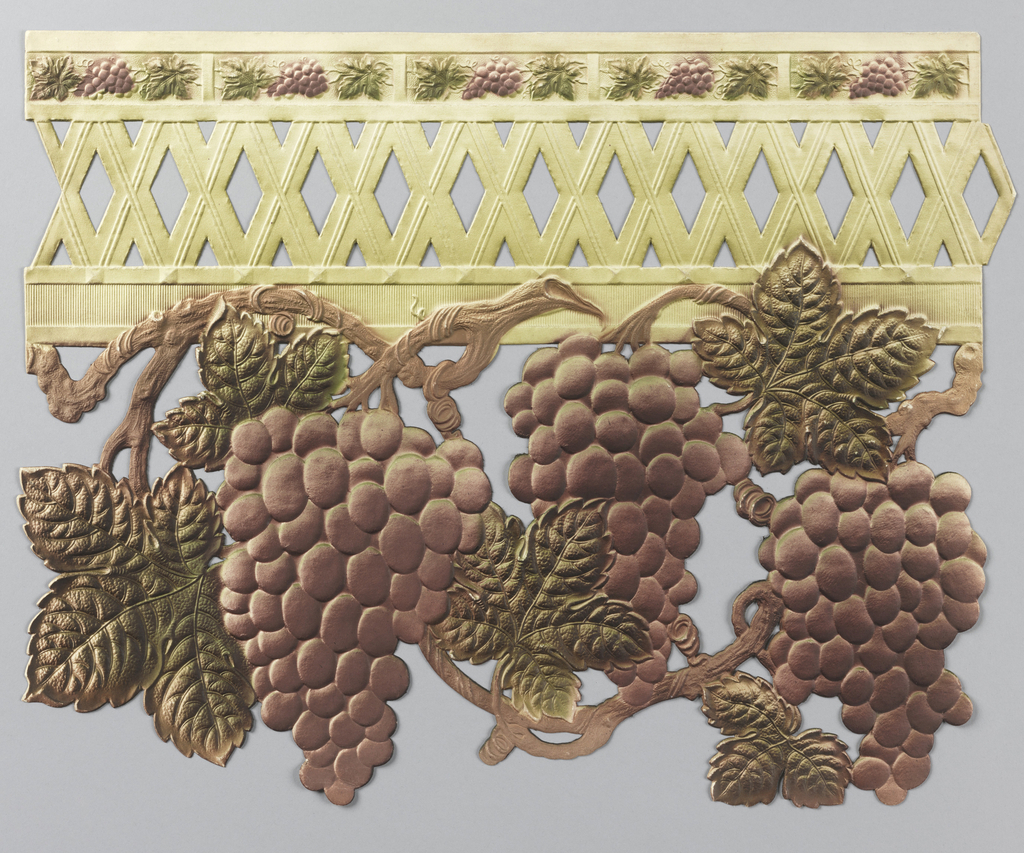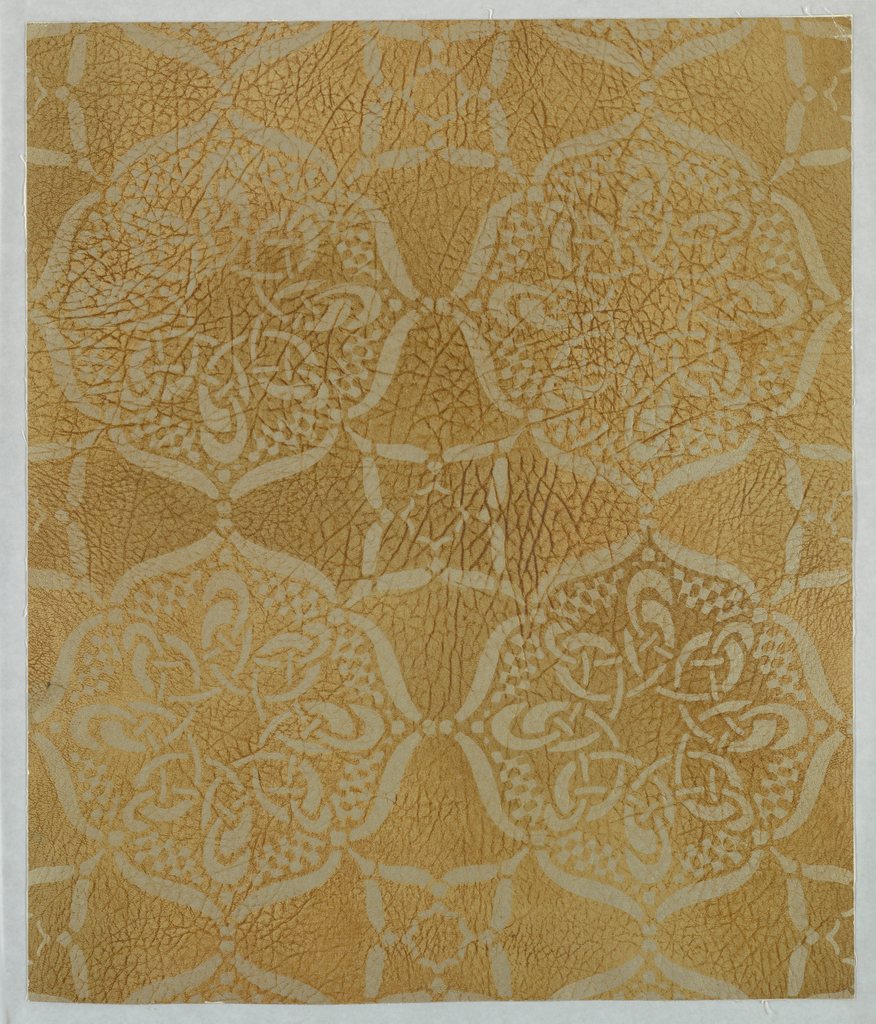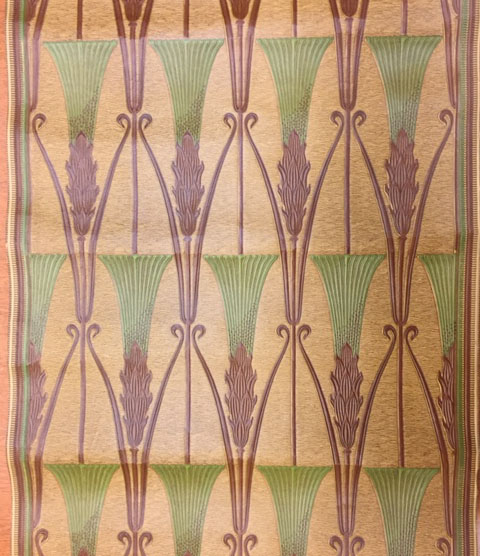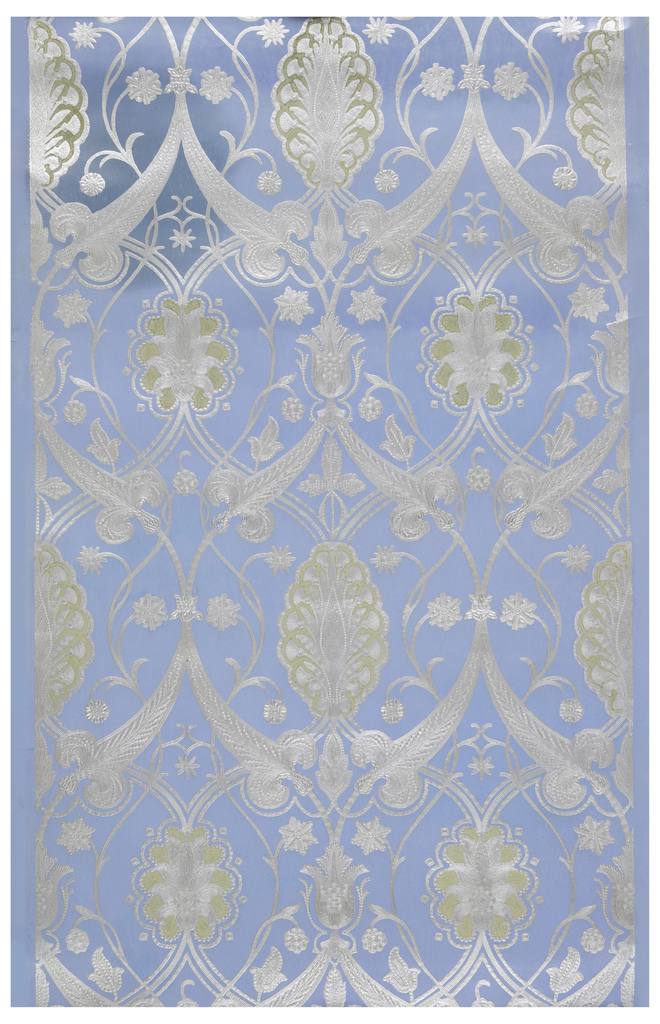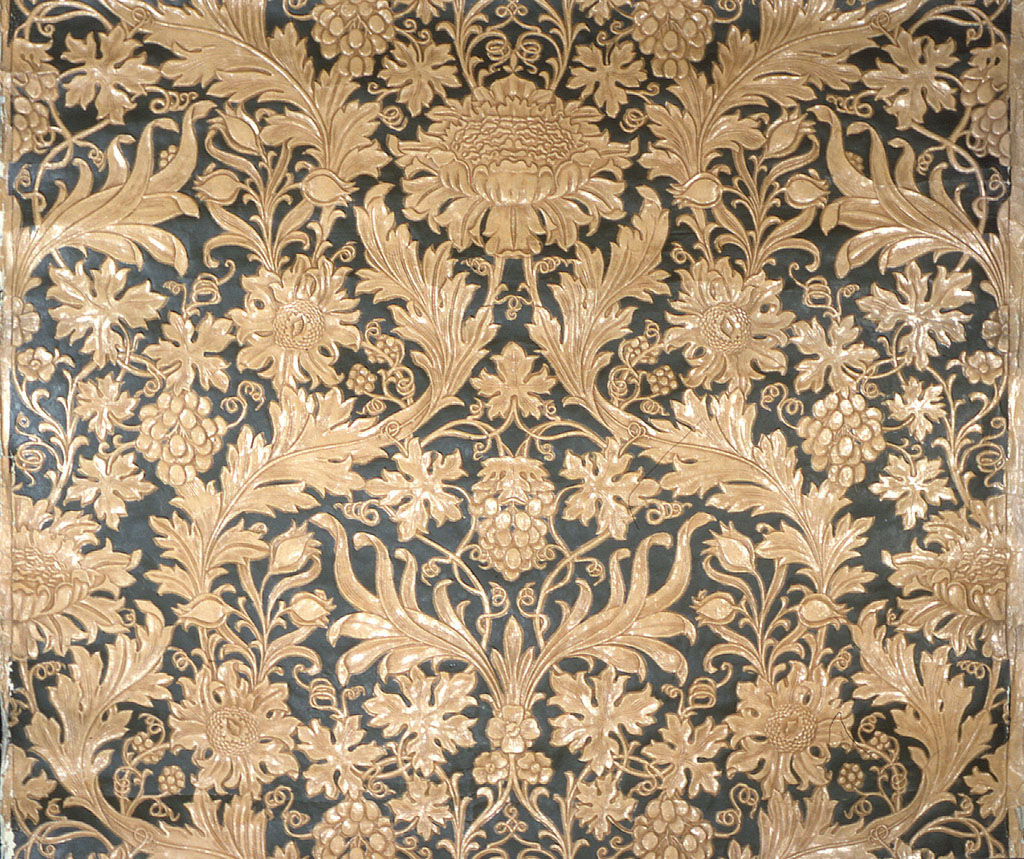I recently had the opportunity to look at the museum’s collection of curtain papers, a lesser known group in the Wallcoverings department. A visiting paper conservator from the UK’s National Trust was researching curtain papers and while in New York on a courier trip stopped by to see Cooper Hewitt’s examples. Not much is known...
Walking through Central Park I enjoyed seeing all the brightly colored leaves in the trees, while the fallen leaves crunched underfoot. I thought this wallpaper with its warm colors and hints of green seemed to beautifully capture the essence of the fall day. This is a fairly stylized landscape scene which includes trees, vines, and...
Presenting an unusual wallpaper border that reflects both the current wall fashion and the use of new technology. This paper border is embossed and die-cut, with many open or pierced areas within the design. The border consists of large bunches of purple grapes hanging on the vine with green-colored foliage. The vine is suspended from...
I recently pulled this piece of imitation leather from storage to consider for an exhibition and was struck by the beauty of the material and craftsmanship. This is paper, a very heavy stock, which is embossed and printed to imitate an antique leather. The design is wood block printed, the paper is embossed with a...
This roll of embossed imitation leather wallpaper is a beautiful example of Art Nouveau design. The pattern is a repeating design of a single motif, a stylized ear of wheat or other grain, lined up in offset horizontal rows. The leaves have been delicately rendered with the tip ending in a scroll, while the top...
Imitation leather papers meticulously reproduce the grain, patterns, and coloring of antique leathers. While these wallpapers were expensive to produce due to all the handwork necessary to capture the embossed leathers, they were much less costly, and quicker to produce, than actual leathers. This sample was produced by M. H. Birge & Sons around 1910,...
Leather hangings were a popular way to decorate walls in Europe in the 18th-century. They were often called Spanish leathers because they originated in Spain in the 17th century, but these early hangings were simply painted. As the popularity of leather hangings increased in the Netherlands and England, it became more popular to emboss the...
